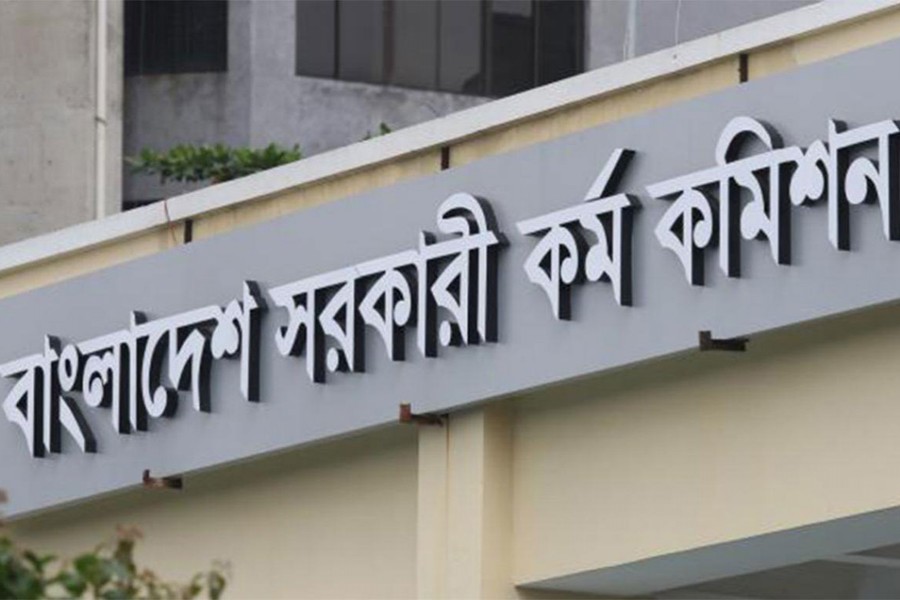
Published :
Updated :

In recent months, financial or other scams have been hitting the news headlines one after another. Indeed, it has become difficult for people to keep track of those who are coming at them thick and fast.
First came the incidents of bank money plundering that eroded the financial health of many private banks. Some people have strong links with the powers-that-be, who allegedly managed to take control of several banks and financial institutions and divert funds worth billions of taka.
This unique development added a new dimension to the country's financial sector. Until then, a considerable volume of non-performing loans (NPLs) was a matter of intense debate in the public domain and at the policymakers' level. Instead of improving, the NPL situation has deteriorated, with the total soured asset soaring to more than Tk. 4.0 trillion. The amount includes loans under rescheduling, litigation and written-off categories.
As if to divert the public attention from scam stories involving the financial sector to something else, there came stories of how some high-level government officials, former and present, acquired wealth in unbelievable proportions, resorting to corruption and abuse of power. Those proved to be saucy. People are now devouring such stories, courtesy of print and electronic media.
Amidst all the scams, financial or otherwise, at least a couple of revelations have drawn widespread attention. They are the involvement of the chairperson and some other officials and employees of Bangladesh Technical Education Board in preparing and selling forged educational certificates and the leak of PSC exam question papers.
A private TV channel made yet another shocking revelation early this week. It has unearthed how question papers are leaked by a syndicate of officials and employees of the Public Service Commission (PSC). What has been revealed until now is that the syndicate leaked question papers to people seeking second-class and other government jobs in various departments. The police have arrested at least 17 persons, including two deputy directors and one assistant director. According to media reports, the syndicate has been active inleaking question papers for more than 12 years for various government jobs, including those for the Bangladesh Civil Service (BCS) examinations. The private TV channel prepared an investigative report based on allegations of irregularities received from some people who had taken part in a recruitment examination for Bangladesh Railway on July 05 last.
Following the detection of such cases, the newspapers are now agog with reports highlighting the wealth amassed by individuals involved in corruption, bank loan fraud, and other irregularities. With PSC people's latest question paper leaks, a former PSC chauffeur has received the most attention. He allegedly made disproportionate wealth, amounting to Tk.500 million, out of the occasional question paper leaks.
The PSC high-ups were aware of the developments surrounding periodic recruiting exams. In 2014, following the detection of question paper leaks, they took action against some of its officials and employees. However, the actions were half-hearted, leading to the recurrence of such criminal activities in the following years.
The unearthing of PSC question papers comes as thousands of university and college students have taken to the streets to support the demand for reforming the quotas in government jobs. They have been blocking roads and railways to press home their needs, which include abolishing the reserved quota for grandchildren of freedom fighters.
If people can get government jobs using leaked question papers, what is the use of engaging in street protests? They will eat up most jobs reserved for both quota and non-quota candidates. The street demonstrators should add yet another demand to their list-- -make the PSC examination systems free from manipulation and irregularities.
Leaking question papers prepared for public and admission examinations is a familiar practice. It has been happening in Bangladesh and many other developing countries, in particular.
Only recently, the leaking of question papers for medical examinations rocked neighbouring India. The integrity of the entry exam came under severe scrutiny when the news of a massive question paper leak broke. Anurag Yadav, a key figure in this scandal, confessed that the leaked papers matched the actual ones.
Question paper leaks have been a persisting issue in the education sector. Despite taking all safeguards, some question papers get leaked because of the involvement of insiders who can hardly resist the lure of unearned income. Because of these greedy individuals, the credibility of public examinations is undermined.
It is beyond dispute that the traditional methods of paper setting and distribution need to be revised to prevent loopholes and plugging of the same necessitates something different.
Secure technology-driven solutions might help the authorities concerned to stem the rot. Setting of personalized questions much like GRE and GMAT, generation of AI-driven questions, last-minute delivery of question papers to examination centres, multi-factor authentication in the matters of opening and accessing of question papers, advanced encryption of information, implementation of an effective question paper generation solution etc., might help stop, to a large extent, the incidence of question papers leaks.
Stringent laws should supplement technological advancements to deal with question leaks. The crime of leaking question papers prevents competent people from securing government jobs and deprives deserving students of their best in public examinations. It needs to be stopped at any cost.
zahidmar10@gmail.com


 For all latest news, follow The Financial Express Google News channel.
For all latest news, follow The Financial Express Google News channel.